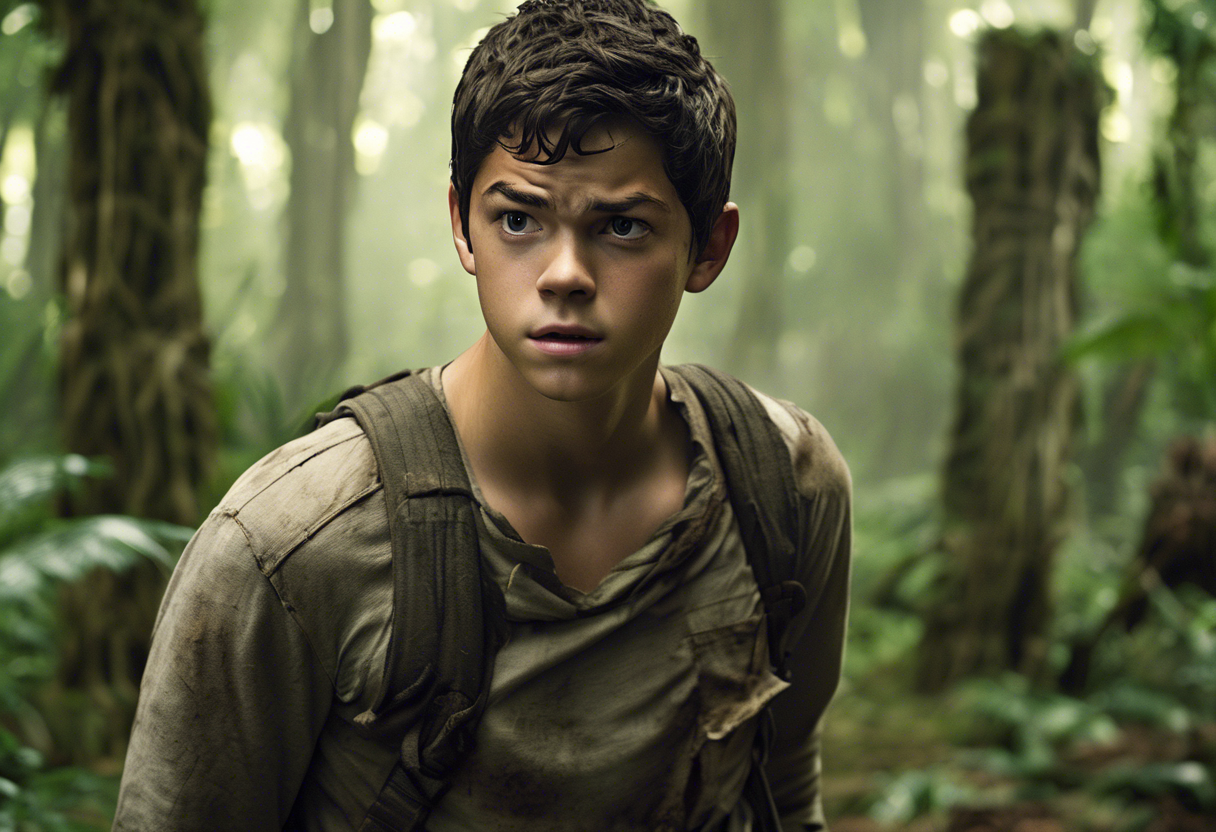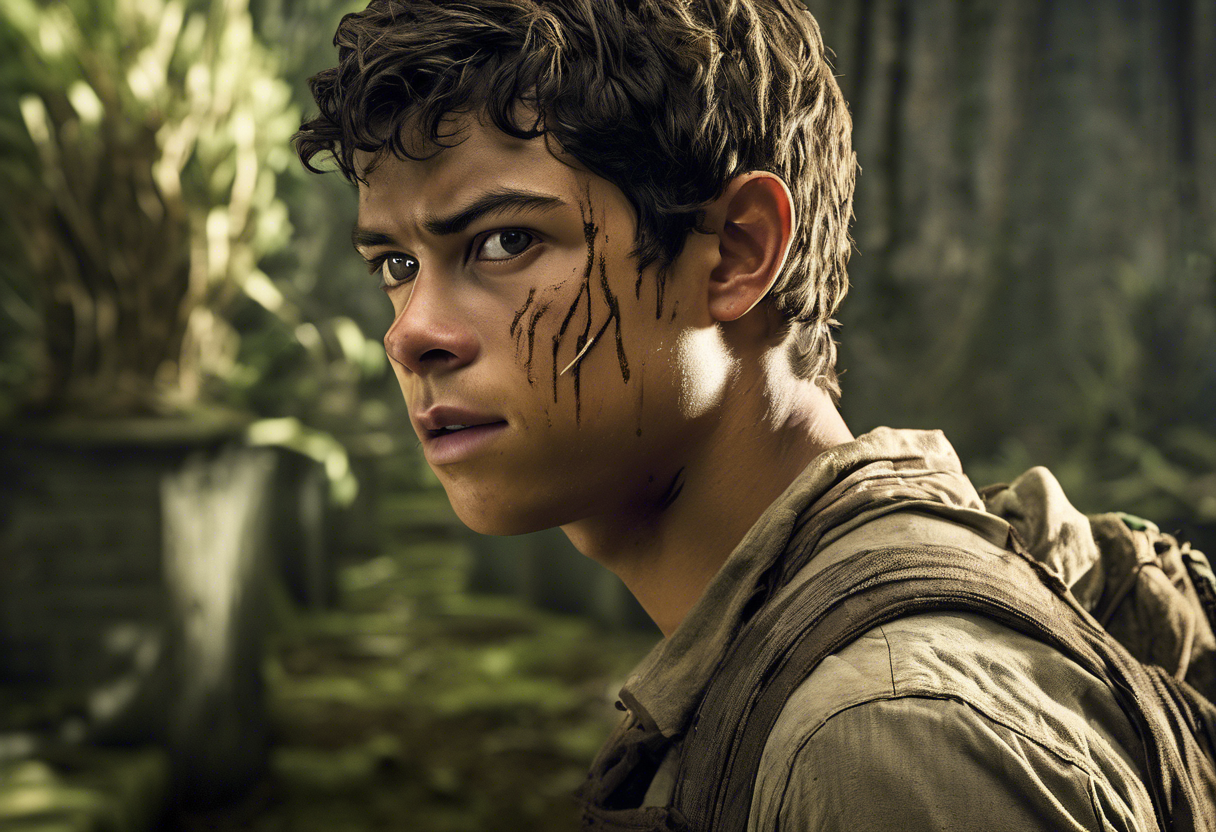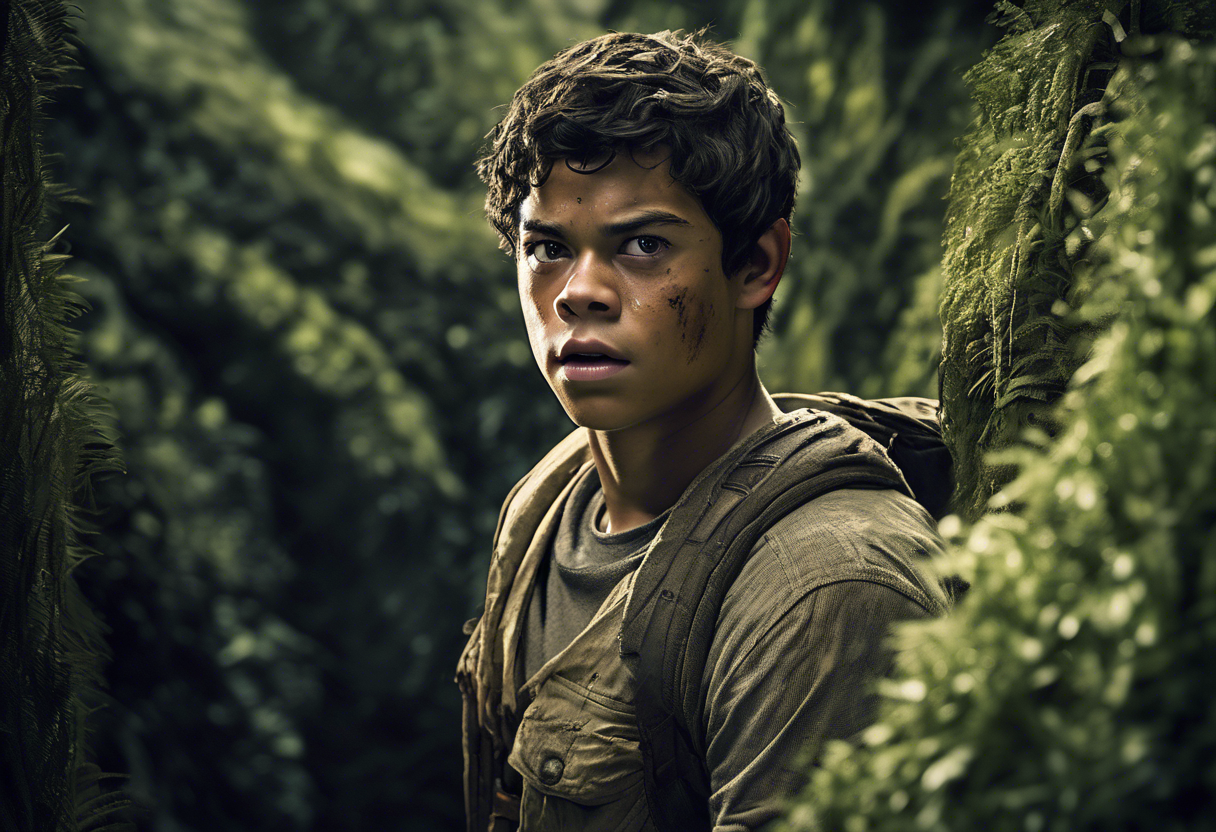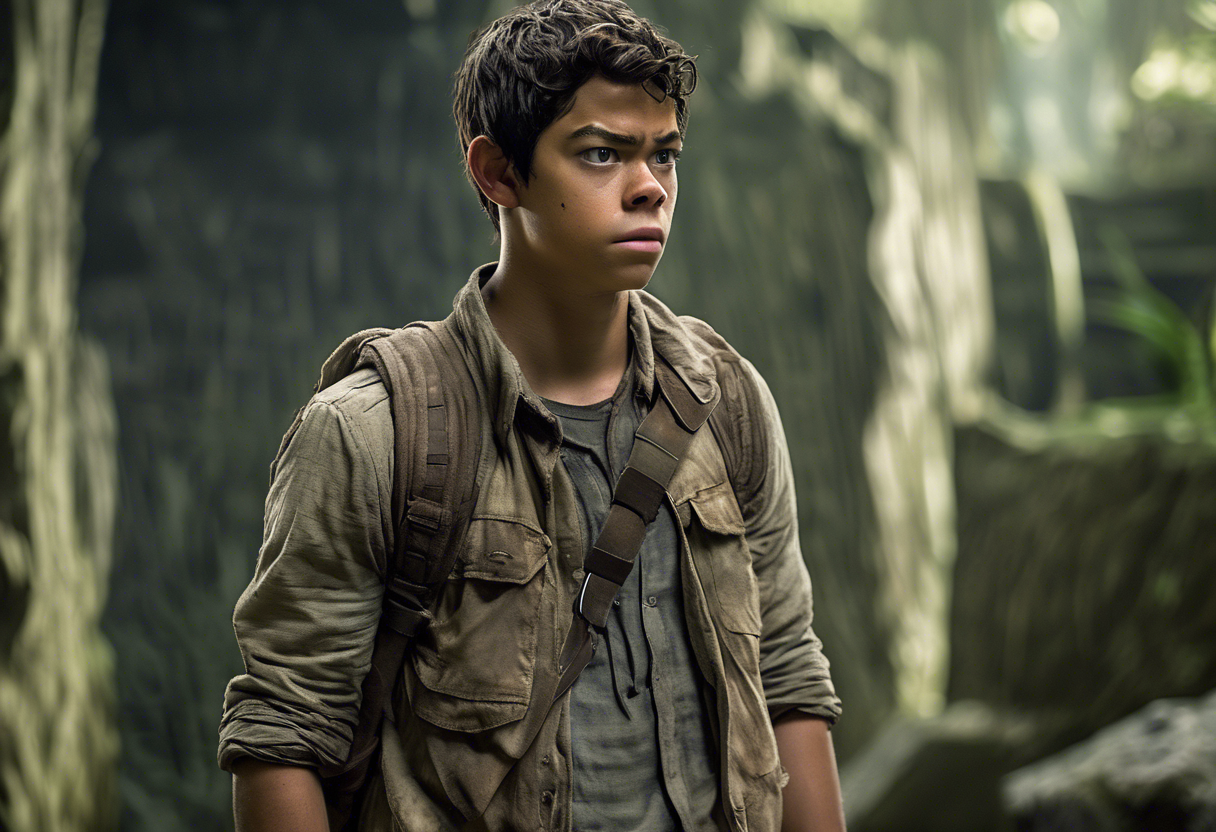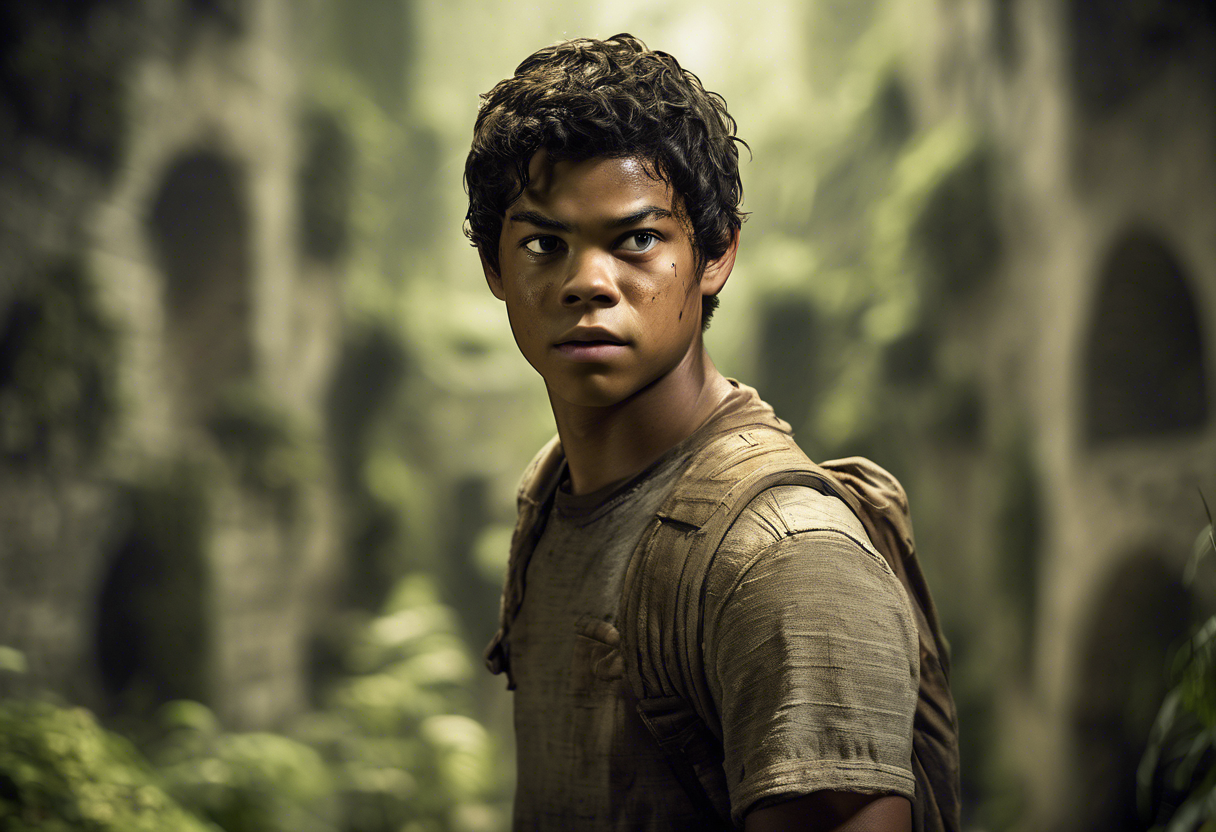Contents
Winston from The Maze Runner
Introduction
Winston is a significant character in the dystopian series The Maze Runner, adapted from James Dashner’s best-selling novels. He is one of the Gladers, a group of teenagers trapped in a mysterious maze as part of an experiment by the World In Catastrophe: Killzone Experiment Department (WCKD). Winston’s character is notable for his distinct role, personality, and the emotional impact of his storyline on the narrative.
In the movies, Winston is portrayed as the keeper and slicer of the Blood House, where animals are raised and slaughtered for food in the Glade. Despite his job involving the killing of animals, Winston is depicted as someone who cares deeply about the animals and ensures they are treated with respect until their last moments[2][3].
Winston’s character adds depth to the story by highlighting the moral and emotional struggles of the Gladers. His interactions and relationships with other characters, such as Thomas, Newt, and the rest of the group, underscore the themes of camaraderie, sacrifice, and the human condition in the face of adversity.
Role in the Story
Winston’s role in The Maze Runner series is multifaceted and pivotal. Initially, he is introduced in the first film, The Maze Runner, where he is seen performing his duties at the Blood House. Winston is a quiet and earnest individual who adheres strictly to the rules of the Glade, yet he also shows a compassionate side, particularly in his interactions with Thomas[2][3].
In Maze Runner: The Scorch Trials, Winston’s storyline takes a dramatic turn. He contracts the Flare virus, which gradually turns people into zombie-like creatures known as Cranks. This development forces Winston to confront his own mortality and the danger he poses to his friends. In a heart-wrenching scene, Winston, realizing he is becoming a Crank, decides to end his life to prevent harming others. Newt, out of respect and compassion, gives Winston the gun he uses to commit suicide[1].
Winston’s death is a critical moment in the series, highlighting the harsh realities of the world the characters inhabit and the difficult choices they must make to survive. His sacrifice also underscores the strong bonds of friendship and loyalty among the Gladers.
Character Analysis
Winston’s personality is marked by his seriousness, loyalty, and a deep sense of responsibility. Despite his role as the keeper of the Blood House, which might suggest a cold or callous nature, Winston is shown to be caring and respectful towards the animals he handles. This duality makes him a complex and relatable character[2][3].
Winston’s motivations are rooted in his desire to protect and care for those around him. His decision to end his life rather than risk infecting his friends with the Flare virus is a testament to his selflessness and bravery. This act also highlights the themes of sacrifice and the moral dilemmas faced by the characters in the series.
One of Winston’s significant strengths is his unwavering commitment to his duties and his friends. However, his flaws include his tendency to be overly self-critical and his struggle with feelings of inadequacy, particularly when compared to other more prominent Gladers like Minho and Newt[3].
Winston’s character development is subtle yet profound. From his initial introduction as a quiet, rule-abiding member of the Glade to his ultimate sacrifice, Winston’s story arc adds emotional depth to the narrative. His interactions with other characters reveal a deeper side to his personality, making him more than just a peripheral figure in the story.
Themes and Symbolism
Winston embodies several key themes in The Maze Runner series. One of the most significant themes is the tension between freedom and confinement. Winston’s life in the Glade, where he is bound by strict rules and routines, contrasts with the freedom he and the other Gladers seek outside the maze. His decision to end his life rather than risk confinement as a Crank underscores the desperation and hopelessness that can arise from being trapped in a situation beyond one’s control[4].
Another theme Winston represents is the power of sacrifice and loyalty. His death serves as a poignant reminder of the bonds between the Gladers and the lengths they will go to protect each other. This theme is central to the narrative, highlighting the human need for connection and the moral complexities of survival in a hostile environment.
Winston also symbolizes the theme of manipulation and control. As a character who is part of an experiment designed by WCKD, Winston’s life is a testament to the manipulative nature of the creators. His fate, like that of the other Gladers, is determined by forces beyond his control, emphasizing the theme of manipulation that runs throughout the series[4].
Cultural Impact
Winston’s character has had a significant cultural impact, particularly among fans of the series. His storyline and ultimate sacrifice have resonated deeply with audiences, making him one of the most memorable and beloved characters in the franchise.
In adaptations and spin-offs, Winston’s character has been portrayed consistently with the original narrative. His role in fan fiction and fan art further underscores his importance to the fan community, who often explore his backstory and relationships in more depth[3].
Winston’s influence on popular culture can be seen in the broader context of dystopian literature and film. His character archetype—the quiet, loyal, and selfless individual—has been echoed in other works within the genre. His story serves as a reminder of the human spirit’s capacity for sacrifice and loyalty in the face of overwhelming adversity.
Critical Reception
Critics and audiences have generally praised Winston’s character for his emotional depth and the impact of his storyline. His sacrifice in Maze Runner: The Scorch Trials is often cited as one of the most heart-wrenching moments in the series, highlighting the actors’ performances and the narrative’s ability to evoke strong emotional responses[1].
There have been varying interpretations of Winston’s role, with some critics noting that his character adds a layer of complexity to the story that is not fully explored in the films. However, overall, Winston is regarded as a compelling and memorable character whose presence enriches the narrative.
Legacy
Winston’s legacy in The Maze Runner series is enduring. His character serves as a powerful reminder of the themes of sacrifice, loyalty, and the human condition. His story continues to resonate with audiences, making him an integral part of the franchise’s cultural impact.
In contemporary discussions, Winston’s character is often cited as an example of the moral complexities and emotional depth that can be achieved in dystopian storytelling. His influence can be seen in other works within the genre, where characters face similar dilemmas and make sacrifices for the greater good.
Winston’s character has also inspired fan engagement and creativity, with many fans exploring his backstory and relationships in fan fiction and art. This ongoing interest in his character underscores his lasting appeal and the significant impact he has had on the Maze Runner franchise.
References
- https://screenrant.com/maze-runner-movies-character-deaths-saddest/
- https://jgdb.com/literature/study-guides/character-winston
- https://www.wattpad.com/1029516336-the-maze-runner-imagines-winston-1
- https://www.enotes.com/topics/maze-runner/questions/in-the-maze-runner-what-are-some-symbols-and-489155
- https://pbi.stkippacitan.ac.id/wp-content/uploads/2022/06/PROCEEDING-UNDERGRADUATE-NATIONAL-SEMINAR_STKIP-PGRI-Pacitan.pdf



